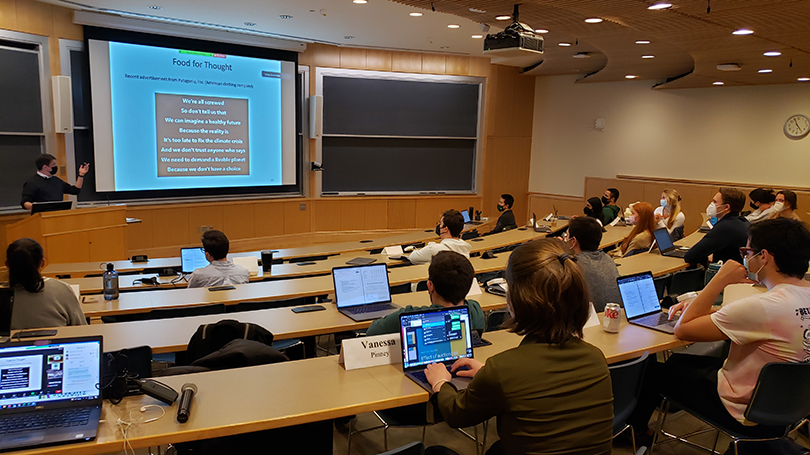
Menu
- About
- Education
- Research
- Engagement & Collaboration
- News & Events
Back to Top Nav
Back to Top Nav
Back to Top Nav
Back to Top Nav
In late January, New York City Energy Efficiency Corporation CEO Curtis Probst and nearly 20 Dartmouth students spent most of a weekend exploring the ways that finance can be a barrier to or enabler of greater adoption of clean energy.
"We need to transition toward a more environmentally sustainable society given both pollution and its health effects, and the impacts of extreme weather and climate change," Probst explained in his introduction to the course. "The production and consumption of energy are the largest contributors to these concerns, and so the transition to a clean energy economy is essential." Finance is a "key lever to drive the implementation of clean energy," he added.
The Clean Energy Finance Bootcamp aimed to familiarize participants with some of the financial techniques for bringing clean energy to markets as well as the basic financial models for evaluating clean energy opportunities. Students also learned about some of the key opportunities and challenges societies face in transitioning to clean energy.
The bootcamp offered a range of activities for participants to engage with the subject, from lectures and short PechaKucha presentations, to role-playing activities and hands-on workshops with different financial models. By and large, the students found the experience informative, useful, and fun.
While many participants noted that they learned a lot about tools for financing the clean energy transition, another common theme in student feedback was that the bootcamp gave them a bigger picture of the complexities involved in this shift. The way that Probst facilitated a participatory activity illustrating the societal challenges stood out to one participant: "I liked that [the role-playing exercise] prompted us to think about the different stakeholders, and that instead of each group just reading their role, there was a bit of back and forth (facilitated by Curtis) to get us to think about how the different parties need to interact to make the project work."
In addition to the basics of clean energy finance, the bootcamp also illuminated the professional possibilities available to students. "The market for clean energy initiatives will increase substantially over the next few years and these projects are more lucrative than most people would think," said one student when asked about a "big takeaway" from the weekend. Another noted, "I didn't realize how big of a field this is going to become, but this is the future and fortunately for us, a great opportunity for our careers."